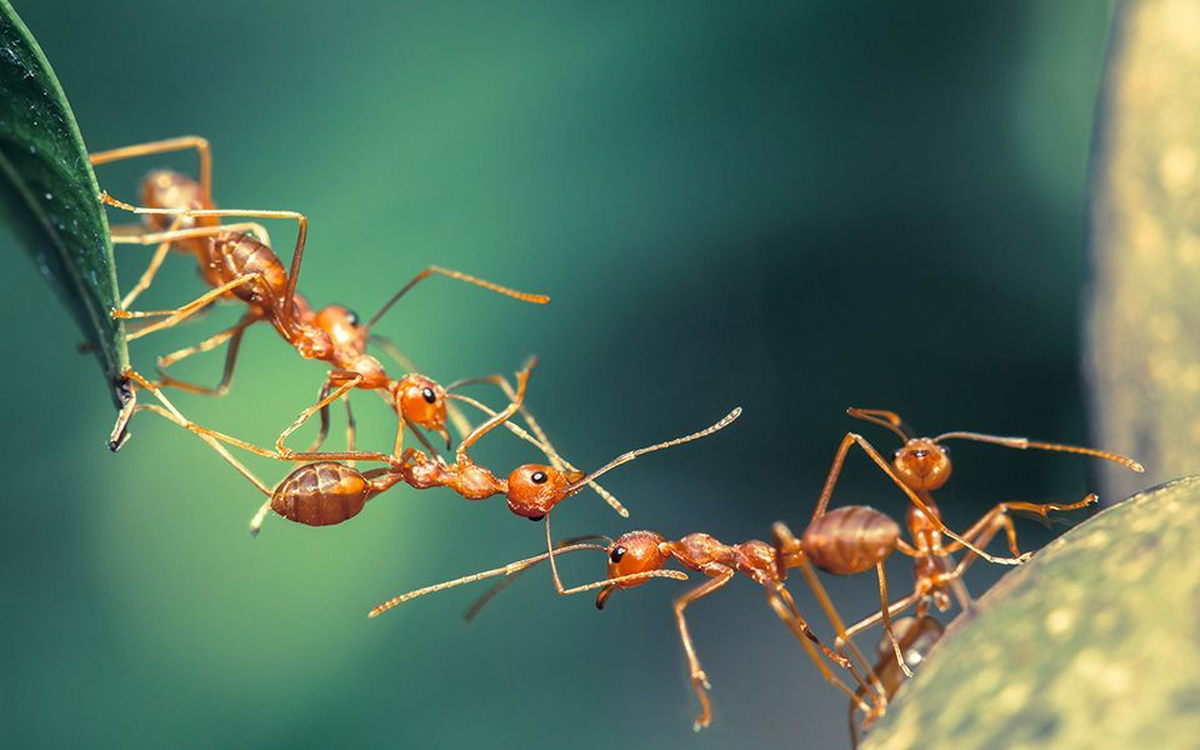New Study Reveals Insects Learn from Negative Experiences

Ants are capable of learning from experience, as demonstrated by a team of evolutionary biologists from the University of Freiburg. The research was led by Dr. Volker Nehring, a research associate in the Evolutionary Biology and Animal Ecology group, alongside doctoral student Mélanie Bey, the journal Current Biology reported.
In the study, ants were repeatedly exposed to competitors from different nests. The ants remembered these interactions and adjusted their behavior accordingly. When they encountered ants from a nest previously associated with aggression, they responded with increased aggression.
In contrast, ants that had only met passive individuals from another nest showed less aggressive behavior. These findings highlight ants’ ability to adapt their responses based on past experiences. The study was published in the journal Current Biology.
Ants use odors to distinguish between members of their own nest and those from other nests. Each nest has its own specific scent. Previous studies have already shown that ants behave aggressively towards their nearest neighbors in particular.
They are especially likely to open their mandibles and bite, or spray acid and kill their competitors. They are less likely to carry out such aggressive manoeuvres against nests that are further away from their own. Until now, it was unclear why this is the case.
Nehring’s team has now discovered that ants remember the smell of attackers. This is why they are more aggressive when confronted with competitors from nests they are familiar with.
The scientists conducted an experiment in two phases. In the first phase, ants gained various experiences: one group encountered ants from their own nest, the second group encountered aggressive ants from a rival nest A, and the third group encountered aggressive ants from rival nest B. A total of five encounters took place on consecutive days, with each encounter lasting one minute.
In the subsequent test phase, the researchers examined how the ants from the different groups behaved when they encountered competitors from nest A. The ants that had already been confronted with conspecifics from this nest in the first phase behaved significantly more aggressively than those from the other two groups.
To test the extent to which the higher aggression arises from the behavior of ants from a particular nest, the scientists repeated the experiment in a slightly modified form. In the first phase, they now distinguished between encounters with aggressive and passive ants. They ensured that an ant behaved passively by cutting off its antennae. In phase two of the experiment, the ants that had previously only encountered passive competitors behaved significantly less aggressively.
“We often have the idea that insects function like pre-programmed robots,” says Nehring. “Our study provides new evidence that, on the contrary, ants also learn from their experiences and can hold a grudge.” Next, Nehring and his team will investigate whether and to what extent ants adapt their olfactory receptors to their experiences, thus reflecting what they have learned at this level as well.
4155/v





















